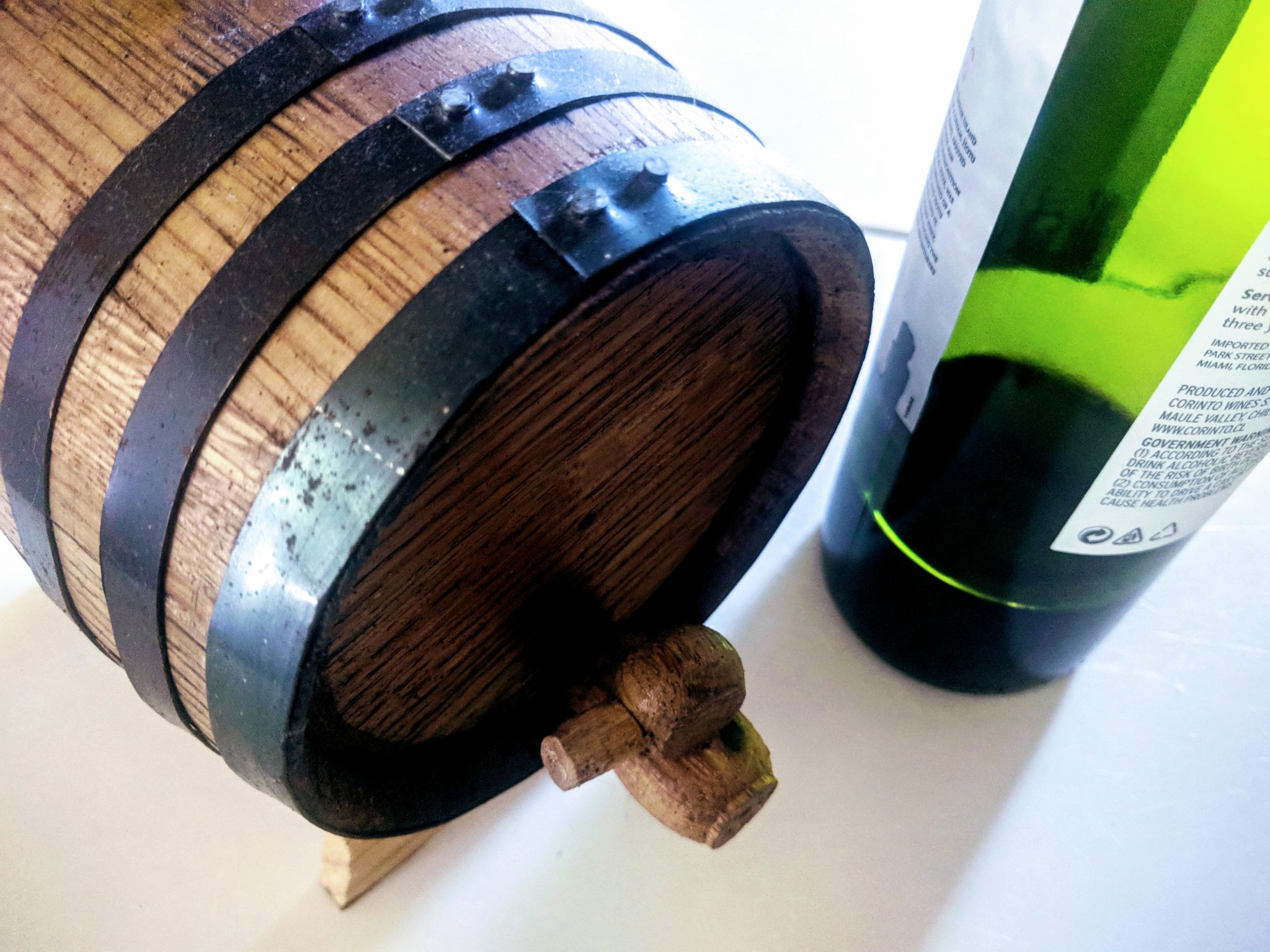homemade vinegar
Bottle ends are a problem that plagues casual and, ahem, more serious wine drinkers alike. The remnants of that bottle of wine that, though good enough at the time, is honestly not improving with age. Rather than drain it down the sink or worse, gritting your teeth and drinking it, consider turning it into vinegar.
While it’s true that wine wants to be vinegar, not all vinegar is created equal. Leaving a bottle open to whatever yeasty friends happen by will surely turn wine sour. While this approach is unlikely to attract anything unhealthy you can greatly increase your chances of cultivating good tasting vinegar by using a starter.
It is surprisingly difficult to come buy vinegar starter that is marketed as such. However, look a little closer at the gourmet vinegars on your shelf and you will likely find a few that are unpasteurized and hence will contain enough live cultures to start your own colony.
You could buy one of these cute little whiskey containers which purport to add oak flavor or you could do the easy thing and add sterilized woodchips to a mason jar. If you do get a whiskey barrel use a hole saw to enlarge the opening in the top to allow your colony to breathe.
And that’s it basically that’s all there is to it. Add the starter to bottle ends and replenish as needed. Bleed off a little at a time and try a brighter vinegar than you are accustomed to. Age a little more for several months and your finished product will likely be far superior to standard vinegar fare.
The truth is that the underlying grape juice does make a difference. You can be certain that the quality of wine you are consuming, no matter where it was located on the shelf, far surpasses whatever bulk wine produced the average commercial vinegar.
I find this project pleasing for its intersection of the DIY Trinity: easy, frugal and better.
